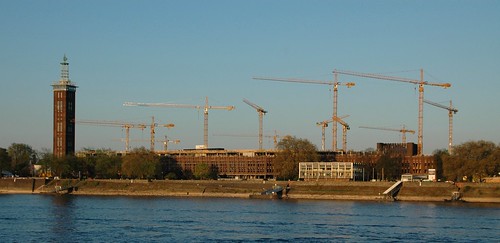13Now when Jesus came into the district of Caesarea Philippi, he asked his disciples, “Who do people say that the Son of Man is?” 14And they said, “Some say John the Baptist, others say Elijah, and others Jeremiah or one of the prophets.” 15He said to them, “But who do you say that I am?”16Simon Peter replied, “You are the Christ, the Son of the living God.” 17And Jesus answered him, “Blessed are you, Simon Bar-Jonah! For flesh and blood has not revealed this to you, but my Father who is in heaven. 18And I tell you, you are Peter, and on this rock I will build my church, and the gates of hell shall not prevail against it. 19I will give you the keys of the kingdom of heaven, and whatever you bind on earth shall be bound in heaven, and whatever you loose on earth shall be loosed in heaven.” 20Then he strictly charged the disciples to tell no one that he was the Christ. (Matthew 16:13-20)
Dulin’s Grove is in an interesting season. There are many among us who are growing like never before. Yet, several are slipping out of our fellowship to attend other churches or, in the worst cases, to drift away from fellowship with Christ and Christians altogether. Furthermore, there is a movement of prayer among us, coursing through our deacons and deaconesses, our House to House groups and individuals. In all this growth, loss and prayer, I would like to zoom in on verse 18, specifically the phrase “I will build my church.”
Church begins with this question: Who do you say Jesus is? Back then, some said he was a reincarnated prophet of old (verse 14). Today, some say he is a good teacher, moral example, misunderstood politician or outright fiction. Peter said he is the Christ (Messiah, long-awaited Savior of God’s people), the Son of the living God. When Peter says this, Jesus erupts into celebration. “Blessed are you, Simon Bar-Jonah! For flesh and blood has not revealed this to you, but my Father who is in heaven.” This supernaturally revealed understanding of Jesus forms the foundation of the church.
This Jesus will build his church. This Jesus is the general contractor. The hammer is in this Jesus’ callused hands. This Jesus draws the plans, gathers the supplies and does the building.
Jesus will build his church.
We have all given and received empty promises. In fact, I would argue that all human promises are empty, because humans do not know the future. For example, I promised Dulin’s Grove that I would always preach Jesus Christ to them. Though I intend to fulfill this promise, an unforeseen head injury could cause me to do and preach all sorts of nonsense. Since I am not all-powerful and all-knowing, my promises will always be to some degree empty.
Jesus is all-powerful and all-knowing, therefore his promises are the only promises that are “full.” When he promises to build his church, he does not mean that he wants to, hopes to or plans to. He means he will. In this respect, Jesus does not make promises, he states facts. “I will build my church” is as much a fact as “2+2=4.”
 Jesus will build his church.
Jesus will build his church.
Recently, my kids and I witnessed the building of a Family Dollar store over the course of their school year. We saw the slow, messy progress every morning as we passed the site. We saw them clearing the land, laying the foundation, gathering the supplies, installing the electrical stuff, insulation, plumbing, roofing, etc. The church is like this.
Jesus spoke creation into existence in an instant, but he builds his church over time. Where creation was like a big bang, church is like a big construction project. With church, the mess is the process. It’s one plank, one brick, one shingle, one nail, one fixture at a time; so don’t expect perfection, expect progress–hammer-pounding, saw-screaming, dust flying progress.
Jesus will build his church.
Whose house do you spend the most time maintaining and care the most about? Your house! Or think of it this way, a neighborhood deteriorates as its houses are converted into rental properties. Why? Because renters do not care for their houses the way owners do. Jesus is the church’s owner. Ephesians teaches that he cares for his church as his own body and bride.
As much as you care about your church, Jesus cares more. As much as you’re concerned for your church, Jesus is more concerned. It is his church.
Jesus will build his church.
Jesus is building a church, an assembly of ‘called out’ ones. The church is God’s people from all across the world and from all of history. It includes old testament believers, new testament believers, early church believers and contemporary believers.
Since the church is the people of God, when Jesus builds his church, he builds his people. As Peter writes, “…you yourselves, like living stones are being built up as a spiritual house” (1 Peter 2:4). This means that when we pray for better fellowship, Jesus will make us better fellowshippers. When we pray for better a prayer ministry, Jesus will make us better pray-ers. When we pray for better worship gatherings, Jesus will make us better worshipers. When we pray for a better ministry to children, youth, men, women, senior citizens or the poor; we can expect Jesus to answer those prayers by giving us deeper love for those people and spiritual gifts to go and serve them.
The church changes as the people’s hearts change. Dulin’s Grove is not an impersonal entity that we can stand apart from and admire or critique. It is you and me.
Conclusion
The Christ, the Son of the Living God is working on building up his chosen people. Look to him. Rest in him. Let him do his work in your heart and among his people. Jesus will build his church.
Discussion Starters
- Why is it important to rightly identify Jesus before trying to be the church?
- How can the fact that Jesus will build his church comfort us as Christians and as church members?
- If the church is a building process, what sort of construction work do you see Jesus doing among us these days?
- What does the fact that Jesus owns the church mean for us?
- What is it that makes the church different from any other organization of people?
- Read Romans 15:2; 1 Corinthians 14; Ephesians 4:29 and 1 Thessalonians 5:11. Based on all of this, what does it look like to be a “living stone” (1 Peter 2:4) in the church?
- Pray, pray, pray!





